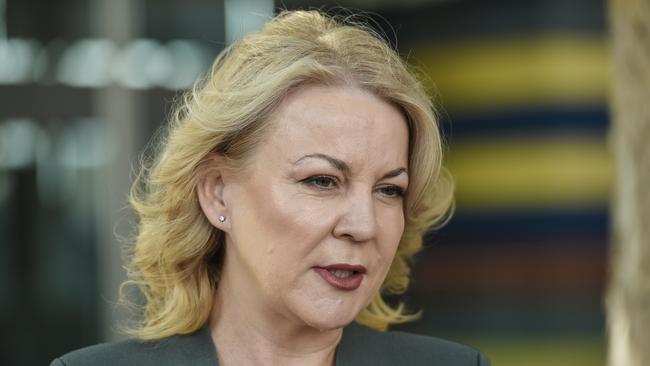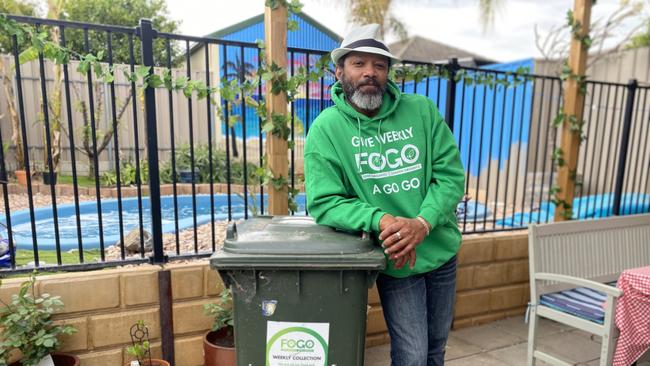Holdfast Bay Council flips bin collection service in a state first, moving to weekly green and fortnightly general waste collection from July 4, 2022
In a state first, one suburban council has given the green light to a new system for rubbish pick-up – and residents “love it”.
SA News
Don't miss out on the headlines from SA News. Followed categories will be added to My News.
Holdfast Bay Council has flipped its bin collection service, rolling out weekly green bin collection and fortnightly general waste collection from July.
The bold move – a state first – aims to encourage more households to recycle their food waste and garden clippings, leaving less rubbish in the general waste bin.
But people can “opt out” and go back to doing things the old way, if they can be bothered to phone the council or fill in the “Old Service” form online, a council spokesperson said.
Alternatively, a larger red-lid landfill bin is available upon request for households that need to dispose a larger amount of waste to landfill, for example those using disposable nappies or hygiene products.
It follows a successful 18-month FOGO (Food Organics Garden Organics) trial involving more than 1000 households that began in September 2020.
Bin audits during the $140,000 state-government-funded trial found that the amount of food put in green bins, as opposed to being wrongly place in general waste bins, more than doubled.
Overall, 84 per cent of waste was diverted from landfill, up from 60 per cent.

Mayor Amanda Wilson said the state-first change was four years in the making and the trial showed that people just “loved it”.
“By the end of September, we’ll be having a weekly green organics bin collection and a fortnightly red bin collection,” she said.
“We’ll be able to use that green organic material for composting and that will go back into South Australian soils, back into our farming communities, making our environment much better for everybody.”
Up to 30 per cent of what South Australians put in their landfill bins is compostable. But when this is disposed to landfill, the organic matter rots producing landfill gas or methane, which is a potent greenhouse gas.
“We know that many of our residents are greatly concerned by climate change and this is one of the easiest and most effective ways of reducing emissions,” Ms Wilson said.
“By putting food scraps into the green-lid FOGO bins, we will reduce the amount of food going to landfill, help lower greenhouse gas emissions, and help make nutrient rich compost for use on farms and gardens.”

Deputy Premier and Environment Minister Dr Susan Close congratulated the council for enabling more recycling of food waste, “while giving larger households the flexibility to request a bigger landfill bin, or the option to switch back to the weekly waste collection”.
“It’s clear that food and organics should not be going to landfill because this is the worst outcome for our climate and for our economy,” Dr Close said.
“It means we lose a valuable resource like compost and that’s a wasted opportunity. It wastes the energy, water and nutrients in that organic material. That’s the old-fashioned linear economy, not the circular economy we want for South Australia.”

The change in the bin collection service will start in early July, first for households whose bins are collected on Mondays, and will be rolled out across the council area over coming months.
Along with garden and lawn clippings, weeds and leaves, all food scraps can go straight into the green-lid FOGO bins – either in a compostable bag, wrapped in newspaper, or loose.
The FOGO bin is also suitable for pet waste (in a compostable bag), nail clippings, hair, greasy pizza boxes, egg cartons, paper towels and tissues.





